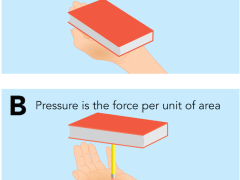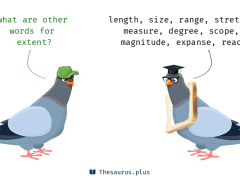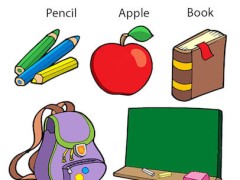strike [straik] n. 罢工
A: Is there a strike? 在举行罢工吗?
B: It seems so. 看起来是这样。
busman [ˈbʌsmən] n. 公共汽车司机
state [steit] v. 正式提出,宣布
【派】statement 声明
【扩】declare 宣布
A: The chairman will state the result soon. 主席将很快宣布结果。
B: I can't wait any more. 我再也等不了了。
agreement [əˈɡriːmənt] n. 协定
relieve [riˈliːv] v. 减轻
【扩】lighten, alleviate 减轻
A: Is it serious? 严重吗?
B: No, it isn't. Some plasters should relieve the pain. 不严重。几贴膏药应该就能解除疼痛。
pressure [ˈpreʃə] n. 压力,麻烦
A: If something goes wrong, the manager will take the blame, not the subordinate. 如果有什么差错,应该怪罪的是经理而不是下属。
B: This explains why my boss always put so much pressure on me. 难怪我的老板总是给我这么大的压力。
extent [ikˈstent] n. 程度
volunteer [ˌvɔlənˈtiə] v. 自动提出,自愿
gratitude [ˈɡrætitjuːd] n. 感激
press [pres] n. 新闻界
object [əbˈdʒekt] v. 不赞成,反对
【扩】oppose, disapprove 反对,不赞成
A: I hope you won't object to our inserting such a clause in the agreement. 希望贵方不会反对我们在协议中加入这么一条条款。
B: I think we should discuss it first. 我想我们应该先讨论一下。
verb [vi. 不及物动词]打,撞;(用手或武器等)打;(使)碰撞;罢工;突然想到,突然意识到;突然袭击;(疾病、灾难等)侵袭;(闪电)击中;引起(强烈感情);(时钟)敲响;达成(协议,妥协),达到(平衡);发现(黄金,矿物,石油);铸造(硬币、奖牌);删除;踢球,击球;攻球得分;使处于特定状态;让(某人)觉得;摆出(姿态);照在…上;把…迷住;弹奏,奏出;划(火柴), 击出 - When workers strike, they go on strike.
noun [专属名词]罢工,罢市,罢课;(军事)打击;击,踢;(石油等宝贵资源的)发现;(投出的)好球;(棒球中的)击空;(十柱保龄球)一投全倒;不利因素;拒绝,抗拒;(渔)(对已上钩的鱼)急拉钓线;(地层、断层等地质特征的)走向 - A military strike is a military attack, especially an air attack.
go on strike 进行罢工
因与雇主在工作条件、工资水平或工作岗位减少等问题上发生争议而拒绝继续工作。
- The workers decided to go on strike to protest against the company's decision to cut their salaries. 工人们决定罢工,以抗议公司削减他们的工资。
be on strik 处于罢工的状态
- Who is on strike? 哪些人在参与罢工?
noun [专属名词]公共汽车司机;售票员 - The busman stopped the bus.
noun [抽象名词]状态,状况;身体(或精神)状况;紧张,焦虑;政府;国家;(联邦制共和国的)州,邦;<非正式>美国(the States);国事礼仪,隆重仪式;<非正式>肮脏,凌乱;(物质的)形态,态 - Some large countries such as the U.S. are divided into smaller areas called states.
adjective [原级]州的;国事的,国事礼仪的;国家提供(或控制)的 - State industries or organizations are financed and organized by the government rather than private companies.
verb [vi. 不及物动词]陈述,说明;规定,公布;<法律>详述(案情);表现(主题,旋律) - If you state something, you say or write it in a formal or definite way.
noun [抽象名词]协议,协定,契约;共识;应允,同意;(在数、性或人称方面的)一致 - It looks as though a compromise agreement has now been reached.
verb [vt. 及物动词]缓解(疼痛或不快的感觉);减轻(问题的严重性);接替,替下;调剂,排遣; 给(城镇)解围,解救;救济,救援;使某人摆脱(烦人的责任);免去,解除;上厕所,排便 - Drugs can relieve much of the pain.
① vt. 缓解,减轻
- This will relieve pressure on the trains to some extent.
- This medicine has relieved my toothache.
② vt. 使……宽心/宽慰,松一口气
- He was much relieved to hear that the operation had been successful.
- The news relieved te whole family.
noun [抽象名词]压力,挤压;(气体或液体形成的)压力,压强;心理压力,紧张;催促,要求;气压 - She kicked at the door with her foot, and the pressure was enough to open it.
verb [vt. 及物动词]对…施加压力,强迫;使…增压 - He will never pressure you to get married.
relieve the pressure 缓解压力:减轻或消除压力或紧张感。
- Taking a walk in the park can help relieve the pressure of work.在公园散步可以帮助缓解工作压力。
the pressure of life/work 生活/工作的压力
- Slowly, because of the work and the pressure of the life not let her lost again. 慢慢的,由于工作的不顺和生活的压力让她再次迷失。
noun [抽象名词]程度;范围,长度 - To some extent this was the truth.
noun [专属名词]志愿者,义务工作者;自告奋勇者,主动做某事的人;志愿兵,义勇兵;自生植物;<法律>无因受益人 - She now helps in a local school as a volunteer three days a week.
verb [vt. 及物动词]自愿做,义务做,无偿做;志愿服役,志愿参军;主动提供(信息),主动说出(或建议);自作主张地说,(未经当事人同意)举荐 - Aunt Mary volunteered to clean up the kitchen.
adjective [原级]志愿(者)的 - Volunteer work gives her life (a sense of) purpose.
① vt. &vi. 自愿,自动提出,自愿提供
- Some college students have volunteered to drive buses while the strike lasts.
- After the fire, many people volunteered their services.
- Frank has volunteered for the army.
② n. 自愿参加者,志愿者
- Are there any volunteers for a try? 有自愿试一试的人吗?
noun [抽象名词]感激之情,感谢 - I wish to express my gratitude to Kathy Davis for her immense practical help.
noun [专属名词]新闻工作者,新闻界(the press);报刊(the press);(报刊、广播、电视的)新闻报道;新闻评论,新闻评价;印刷机;出版社,印刷厂;印刷;按,压,熨;压平器,压榨机,熨烫机;拥挤的人群(或大批事物);(分层)大壁橱,衣柜,书柜;(篮球)紧逼;(举重)推举;<史>(尤指海军的)强行征兵 - Inevitably, the press exaggerated the story.
verb [vt. 及物动词]压,挤,推,贴;按,揿(按钮或开关);将…塞进,把…按入;困扰,严重影响;挤着走;催促,敦促,逼迫;竭力推行,竭力主张;压平,熨平;压榨,榨汁,榨油;把…压成形,压制(尤指留声机唱片);使紧贴,紧抱;(深情地)紧握(某人的手或臂);坚持前进;坚持;(敌人,对手)进逼,进攻;(高尔夫)(为求距离而冒不准确风险的)过猛击球 - If you press a button or switch, you push it with your finger in order to make a machine or device work.
① vt.&vi. 按,挤,压
- She pressed my hand warmly. 她热情地握我的手。
- Can you press that button for me please?
② vt. 挤取,榨取(……的汁)
- This is the time of the year when they press their grapes.
- If you prefer juice, you can press some oranges.
③ vt. 催促,敦促,竭力劝说
- My parents pressed me to enter for the competition.
- I don’t like to be pressed. 我不喜欢被人催促。
pressure n. 压, 压力, 电压, 压迫, 强制, 紧迫
- Ian is a member of the press.
- The press is/are waiting to see the president. 记者们在等着见总统。
noun [具体名词]物体,实物;目的,目标;宾语;(引发某种情感或行为的)对象;客体;(计算机)对象 - He squinted his eyes as though he were studying an object on the horizon.
verb [vi. 不及物动词]反对;反对说,反对的理由是 - Cullen objected that his small staff would be unable to handle the added work.










